Best Supplements For Menopause Support
What are the best supplements for menopause? What vitamins are good for menopause? These are the best supplements to manage your menopausal symptoms.
Summary:
- Vitamins and herbal supplements may help relieve some of the common menopausal symptoms, including hot flashes, night sweats, vaginal dryness, low mood, low libido, and more.
- The efficacy of such supplements varies from woman to woman. Factors to consider when selecting an appropriate supplement include intended use, quality of ingredients, dosage, and contraindications.
Introduction
Menopause brings along a whole host of symptoms: hot flashes, mood swings, low libido, and insomnia, to name a few. It is believed there are up to 34 symptoms in total, most of which a woman has never experienced before, which can endure for several years during this major transition in life.
While these symptoms are a minor inconvenience that can be tolerated by some women, it can feel like fighting a losing battle every day for others.
Although a healthy diet is crucial in regulating hormones and minimising menopausal symptoms, sometimes your body simply needs an extra boost of nutrients in its weaponry to preserve optimal health.
Thankfully, there are plenty of products for menopause available in the form of vitamin and herbal supplements to support you through this difficult transition and have you feeling like the woman you were before menopause took over your life.
Keep reading to learn more about the best menopause supplements to help support the wide-ranging symptoms, as well as what vitamins are good for menopause.
 How To Choose The Best Supplements For Menopause
How To Choose The Best Supplements For Menopause
Effective over-the-counter and natural menopause supplements work by providing deep-acting hormonal support for general long-term symptoms and targeted support that helps alleviate specific symptoms, such as hot flashes or vaginal dryness.
No single supplement will work best for everyone, as symptoms differ greatly from woman to woman, so it’s best to find what works for you personally.
There are a number of factors to consider when selecting a herbal or vitamin supplement for your menopausal symptoms, including:
Intended use
Consider which menopausal symptoms you are most affected by and your individual health needs. Ensure the product is specially-formulated to treat the specific symptoms you’re experiencing.
Quality of ingredients
Over-the-counter menopause supplements aren’t subjected to the same regulations as prescription drugs, which means there isn’t always a guarantee that the product is manufactured according to specified quality standards.
Therefore, ensure the supplement has been rigorously tested for safety, efficacy, purity, composition, and strength of ingredients by an accredited independent laboratory or third-party testing organisation.
Dosage
Instruction labels for supplements usually state a standard dose to all users; however, you don’t necessarily need to take the full recommended dose to meet your health requirements, particularly if your body isn’t deficient in certain vitamins or minerals. Taking more than you need may increase toxicity and the potential to overdose and raise your risk of side effects and developing health conditions.
It’s always better to get the bulk of your nutrients from your diet and then take supplements as a top-up for certain nutrients you may be lacking. The key is knowing what your body needs and understanding the foods that can provide you with the essential nutrients.
Contraindications
Most supplements contain active ingredients that can produce strong effects on the body. They can also reduce the efficacy or interact negatively with other medications you may be taking, subsequently causing health complications. Some supplements can even worsen pre-existing health conditions. Always speak with your doctor or a healthcare professional before taking a supplement to determine whether it is the right option for you.
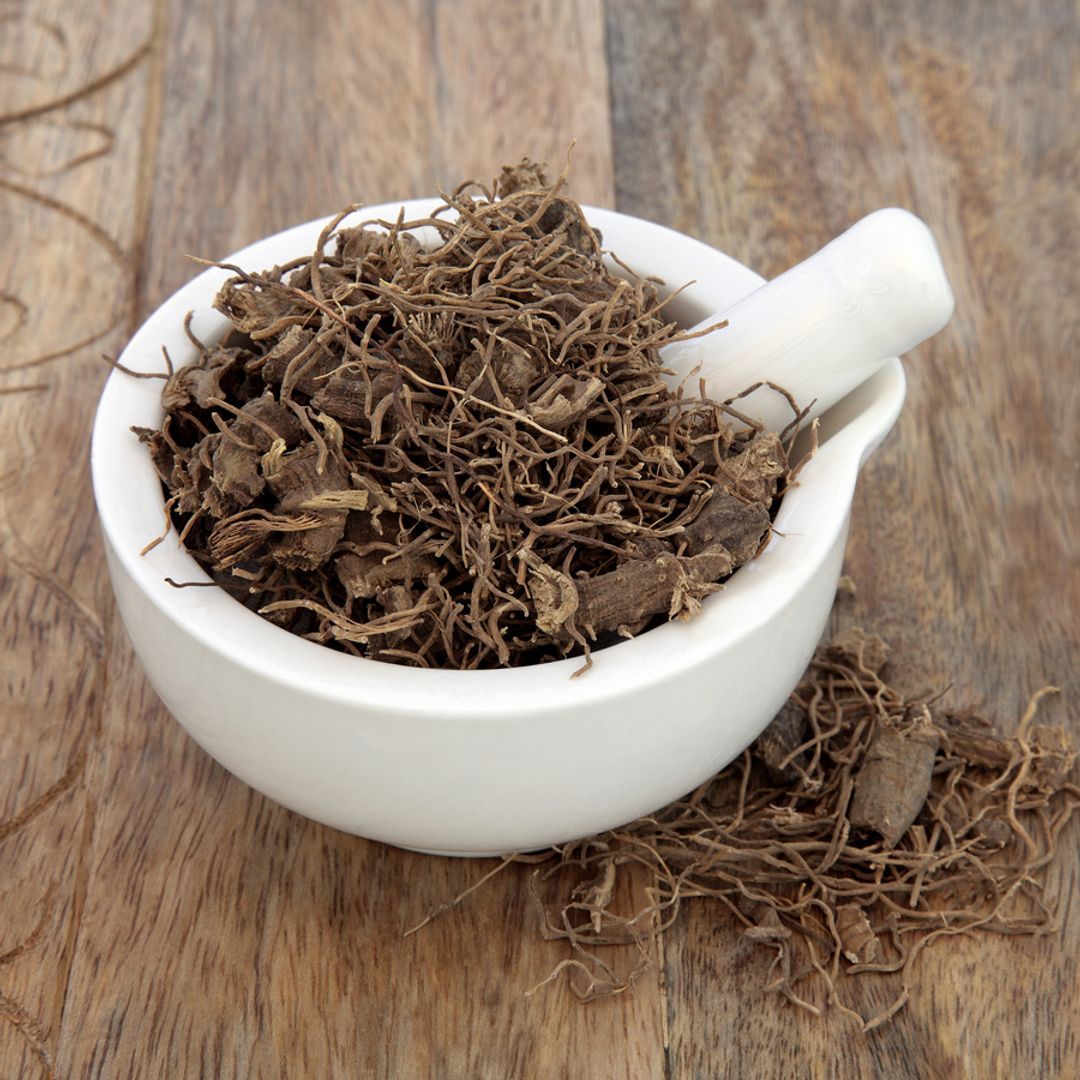 The Best Natural Supplements For Menopause
The Best Natural Supplements For Menopause
Black Cohosh
Black cohosh is high in phytoestrogens, which mimic the effects of natural oestrogen. The herb is especially helpful in treating vasomotor symptoms such as hot flashes and night sweats by reducing their frequency and severity, according to a 2018 study by Mehrpooya et al. [1].
Flaxseed
Flaxseeds are a good source of lignans that help balance female hormones. In fact, one small study found the effects of 40 grams of flaxseed per day similar to that of hormone replacement therapy in improving mild menopause symptoms; however, later studies produced conflicting results [2].
They’re also high in omega-3 fatty acids, which are crucial for proper endocrine and immune system function and particularly important for heart health, considering postmenopausal women are at a higher risk of cardiovascular disease. Not to mention, these super seeds are also a great source of fibre, which is important for a healthy gut as it influences everything from regulating your mood to reducing inflammation.
Red Clover
Various studies have attested to the benefits of red clover in alleviating a range of menopausal symptoms. The herb is high in isoflavones, which have oestrogen-like effects on the body, and, therefore, could help with issues like hot flashes, anxiety, depression, and vaginal dryness. However, further research is needed to confirm these findings [3].
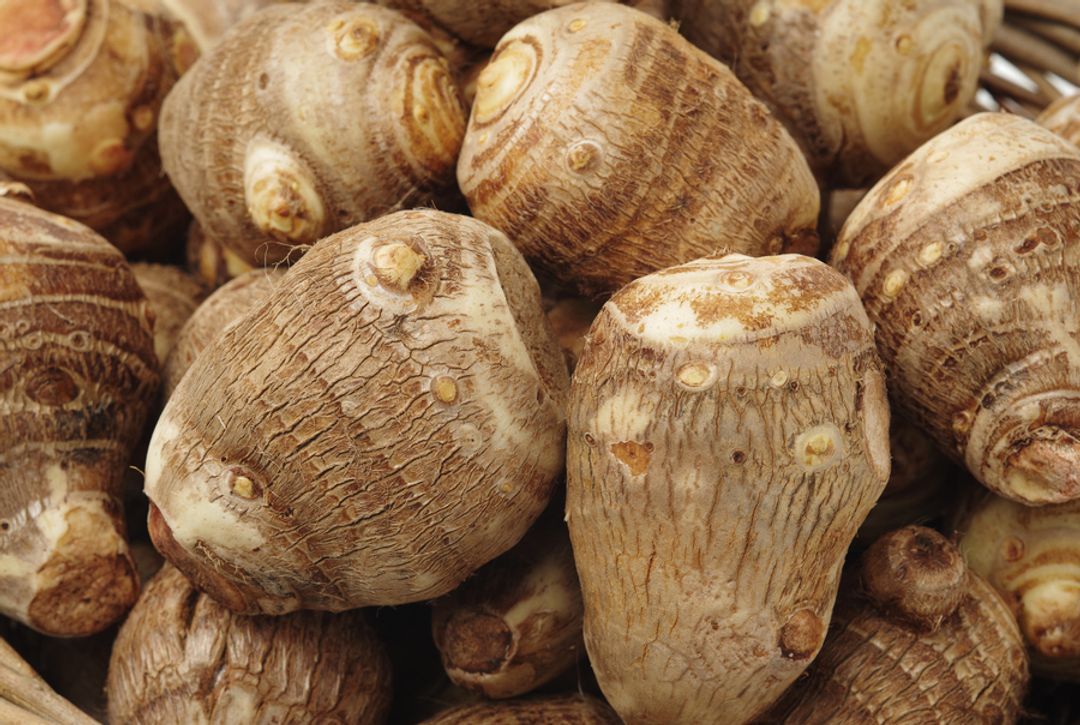 Wild Yam
Wild Yam
Wild yam is a popular ingredient in many menopause support supplements thanks to its diosgenin content, mimicking oestrogen and progesterone in humans. Although research has produced mixed results, one small study found that it could improve low libido by increasing sex hormone levels, as well as reduce cholesterol levels without any undesired side effects [4].
Ginseng
Ginsenosides, the active ingredient in ginseng, acts as a natural stimulant to increase energy levels, boost mood, and improve quality of sleep. A 2013 review published in the Journal of Ginseng Research found that Korean red ginseng had beneficial effects on depression, sexual arousal and overall well-being compared to a placebo; however, the review also concluded that the results were associated with a risk of bias, including a lack of blinding and allocation concealment in many of the studies [5].
St. John’s Wort
Widely known for its properties in treating depression, St. John’s Wort is a botanical herb that may also be beneficial for balancing mood as well as decreasing hot flashes, particularly when combined with black cohosh, according to a 2007 study published in the Journal of Women’s Health [6].
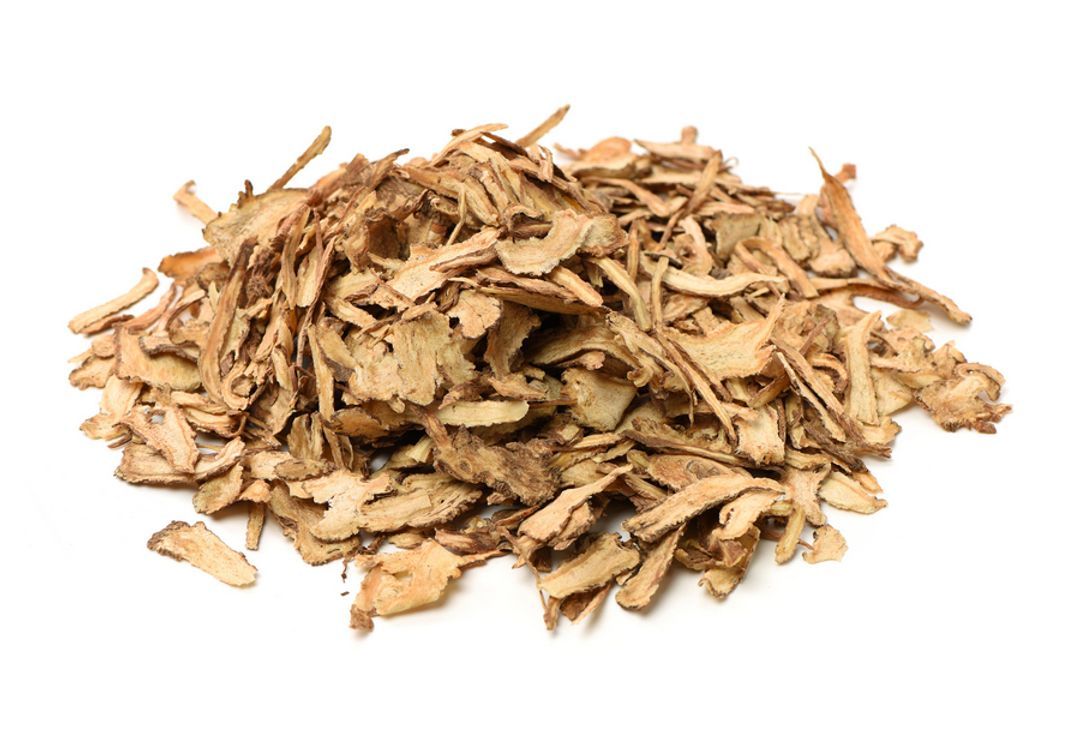 Dong Quai
Dong Quai
This traditional Chinese medicine has been used to treat women’s health issues, including menopause, for thousands of years. The ancient herb is touted for its ability to alleviate depression, and although there is anecdotal evidence to suggest it can relieve menopausal symptoms like hot flashes, studies offer conflicting evidence [8].
Chasteberry
The hormone-balancing effects of chasteberry make it a viable option for many women going through menopause. Participants of a 2003 study reported improved menopause symptoms, including enhanced mood and sleep and reduced night sweats and hot flashes after taking chasteberry essential oil [9].
Soy Isoflavones
Menopausal women in western countries are far more likely to experience hot flashes and other troublesome symptoms than those in Asia. This disparity may possibly be down to Asian diets consisting of higher soy consumption.
The legume has high isoflavone content, which can be beneficial in regulating hormone activity. Many studies have confirmed the benefits of soy in reducing the frequency and severity of hot flashes, including one 2021 analysis, which found that soy supplements reduced symptoms by 26 per cent [10].
Sage Leaf
Another traditional herbal medicine used for generations, sage leaf is specifically targeted to relieve hot flushes and night sweats. While the herb is also available as a tea and essential oil, only the supplement form has been shown to ease such menopausal symptoms, as reported in a Swiss study of 71 menopausal women [11].
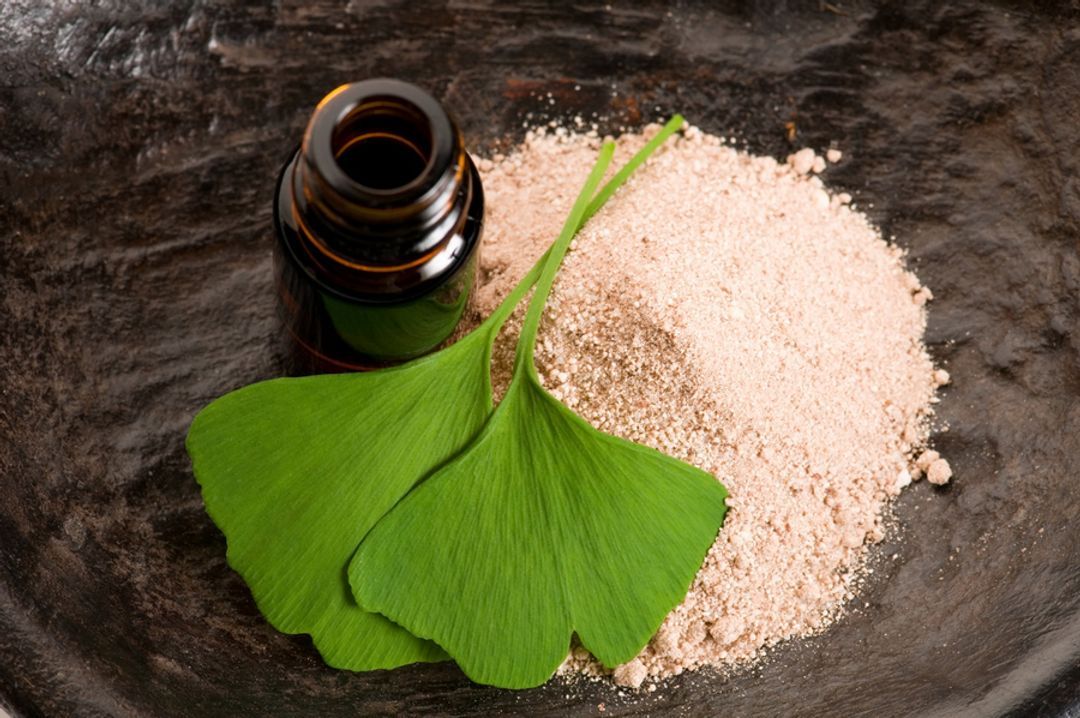 Ginkgo Biloba
Ginkgo Biloba
Ginkgo biloba is particularly beneficial for brain fog and memory issues related to menopause, owing to its ability to enhance cognitive performance and mental focus, as shown in the 2011 study by Silberstein et al. [12].
Horny Goat Weed
Horny goat weed has traditionally been used to help with low libido, mainly by increasing blood flow and supporting hormone balance. It can also be used to treat many other menopausal symptoms, including mood swings, fatigue, and sleep issues, thanks to its rich flavonoid content acting as a weak form of oestrogen [13].
Evening Primrose Oil
Increasing your intake of essential fats through evening primrose oil can help with menopausal symptoms like vaginal dryness, hot flashes, and mood swings. The fatty acids found in the product produce hormone-like compounds called prostaglandins, which help alleviate issues related to hormonal imbalances and also fight inflammation.
While there is insufficient evidence to support such claims, evening primrose oil remains the most commonly used natural remedy among postmenopausal women, according to a 2015 survey [14].
Omega-3 fatty acids
Despite the body needing omega-3 for literally every function, many women are deficient in this essential fatty acid. Omega-3 is crucial for heart and brain health, helping to reduce the risk of psychological issues such as depression and anxiety, as well as the frequency of hot flashes [15]. Fatty acids also lubricate the body, which can help ease vaginal dryness.
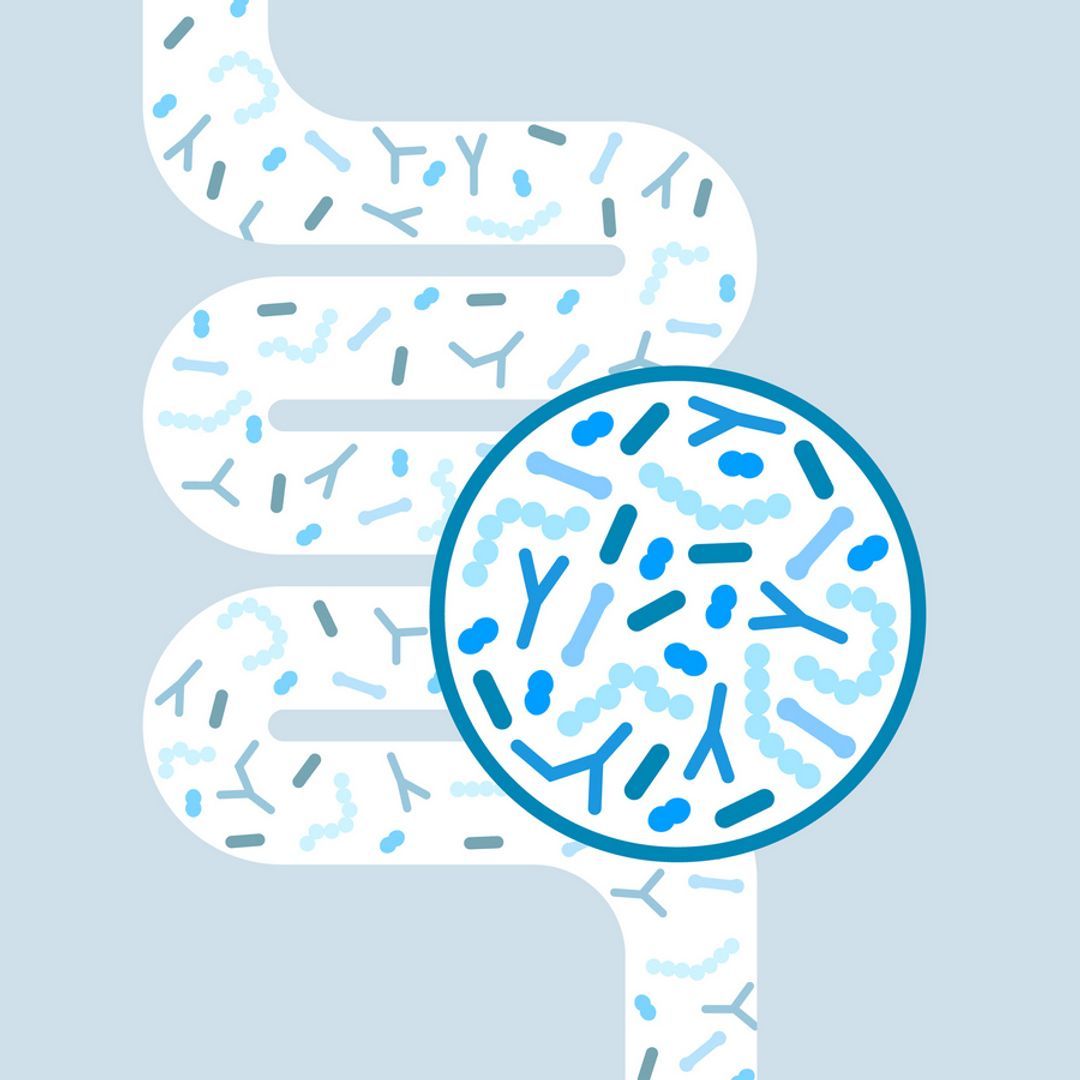 Probiotics
Probiotics
There is no overall health without a healthy gut, and without a healthy gut hormone production might be impaired. Probiotics may be of help here. In fact, one major study found that a probiotic supplement consumed for six weeks significantly improved mood state, sleep quality, and fatigue in participants [16].
Collagen
Collagen begins to degrade dramatically during menopause, leading to sagging skin, fine lines, wrinkles, and dryness. Although there is little clinical evidence to support hydrolysed collagen supplements enhancing skin elasticity, many women attest to its benefits in improving the appearance of their skin. Collagen supplements can also support gut and joint health.
Turmeric
There’s plenty of evidence to support turmeric’s anti-inflammatory properties, from boosting heart health, reducing the risk of type 2 diabetes, and possibly even alleviating depression [17].
The Best Vitamins And Minerals For Menopause
Vitamin and mineral supplements are indicated for those who have a deficiency that cannot be met through dietary changes alone. You do not need to supplement if your existing vitamin and mineral levels are sufficient. A simple blood test can determine whether or not you are deficient in any vitamins or minerals.
Vitamin D
Vitamin D is essential for the proper function of the immune system, bone health as well as mental health. Good food sources include fatty fish like salmon, tuna, or trout, as well as eggs and avocado. Many of us tend to be vitamin D deficient despite our optimal dietary intake, which is likely due to a lack of sun exposure necessary for the production of an active form of the vitamin. To see if this might be true for you, prior to taking supplements, consult your doctor for a blood test to check your vitamin D levels.
Calcium
Calcium stores may also deplete during menopause. Calcium keeps your bones sturdy and your teeth healthy, and has a number of other important roles to play in the body. You may find it in dairy, tuna, spinach, black-eyed peas and other foods.
Magnesium
Magnesium is an important mineral required for energy production, blood pressure regulation, and normal muscle and nerve function, amongst others. You may find it in spinach, pumpkin seeds, nuts, tuna, bananas, and avocado.
 Vitamin A
Vitamin A
Vitamin A is essential for proper immune and thyroid function and optimal skin health. It comes in two forms: retinoids from dairy products and carotenoids from fruits and vegetables; the latter goes through a conversion process in the body to form vitamin A. Good food sources include beef and lamb liver, as well as sweet potato, kale, bell peppers, carrots, and grapefruit.
Vitamin B6 and B12
Vitamin B6 contributes to regulating hormone activity and may help ward off depression and boost energy, while vitamin B12 is necessary for bone health and neurological function. Good sources of B6 include tuna, chicken, chickpeas, bananas, and potatoes. For B12, opt for foods like dairy, eggs, beef, fortified cereals and soy milk.
Vitamin K
Vitamin K is important for bone density, blood clotting, and reducing the risk of fractures. In fact, research suggests that eating a daily portion of leafy green vegetables may cut your risk of hip fractures by half, particularly when combined with vitamin D [18]. Good food sources include leafy greens like spinach, kale, and chard, and cruciferous vegetables like broccoli, Brussels sprouts, and cabbage.
Vitamin C
A powerful antioxidant, vitamin C is crucial for maintaining bone health, warding off heart disease, and may even relieve hot flash symptoms. Good food sources include citrus fruits, guava, kiwi, red peppers, tomatoes, broccoli, and papaya.
Take Control Of Your Menopausal Health With A GlycanAge Test
Taking a GlycanAge test can become the first step to taking control of your health during menopause. It is the only biological age test that can accurately measure your body’s unique response to lifestyle changes.
Results from a simple finger prick test will identify your true biological age by analysing how much chronic inflammation there is in your body. Based on this information, along with specific menopausal symptoms you’re affected by, you can implement the necessary changes through diet and supplementation to positively influence your biological age and alleviate any debilitating issues associated with menopause.
The sooner you take a test, the more control you can have over your menopause symptoms and overall well-being. Order your home testing kit today to get started.
FAQ
Do vitamin supplements work for menopause?
Vitamin supplements will only work to improve menopausal symptoms by addressing nutrient deficiencies (if there are any) and regulating hormonal activity in the body. Phytoestrogenic herbs, on the other hand, work by mimicking the female hormone oestrogen to relieve symptoms caused by hormonal imbalance.
How can a woman balance her hormones naturally?
In addition to herbal and vitamin supplements to help balance hormones during menopause, there are other strategies that can help with this process. Read about them here.
References
- https://www.ncbi.nlm.nih.gov/pmc/articles/PMC5868221/
- https://pubmed.ncbi.nlm.nih.gov/25882265/
- https://pubmed.ncbi.nlm.nih.gov/33920485/
- https://pubmed.ncbi.nlm.nih.gov/11428178/
- https://www.ncbi.nlm.nih.gov/pmc/articles/PMC3659624/#!po=8.06452
- https://www.ncbi.nlm.nih.gov/pmc/articles/PMC1764641/
- https://pubmed.ncbi.nlm.nih.gov/25879093/
- https://www.ncbi.nlm.nih.gov/books/NBK501836/
- https://pubmed.ncbi.nlm.nih.gov/12852933/
- https://journals.lww.com/menopausejournal/pages/articleviewer.aspx?year=2012&issue=07000&article=00011&type=abstract
- https://pubmed.ncbi.nlm.nih.gov/12852933/
- https://pubmed.ncbi.nlm.nih.gov/21941584/
- https://pubmed.ncbi.nlm.nih.gov/12787956/
- https://journals.lww.com/menopausejournal/Fulltext/2015/04000/Use_and_perceived_efficacy_of_complementary_and.6.aspx
- https://www.ncbi.nlm.nih.gov/pmc/articles/PMC3195360/
- https://www.ncbi.nlm.nih.gov/pmc/articles/PMC6445894/
- https://www.ncbi.nlm.nih.gov/pmc/articles/PMC2929771/
- https://www.ncbi.nlm.nih.gov/pmc/articles/PMC5413254/

Start or continue your GlycanAge journey
Don’t be afraid to reach out to us and ask questions, provide commentary or suggest topics.
 GlycanAge is a biological age test paired with expert advice to help guide your wellness.
GlycanAge is a biological age test paired with expert advice to help guide your wellness..png?alt=media&token=8aef4c47-8cb6-4fc7-9266-bfc1c3764e0c)